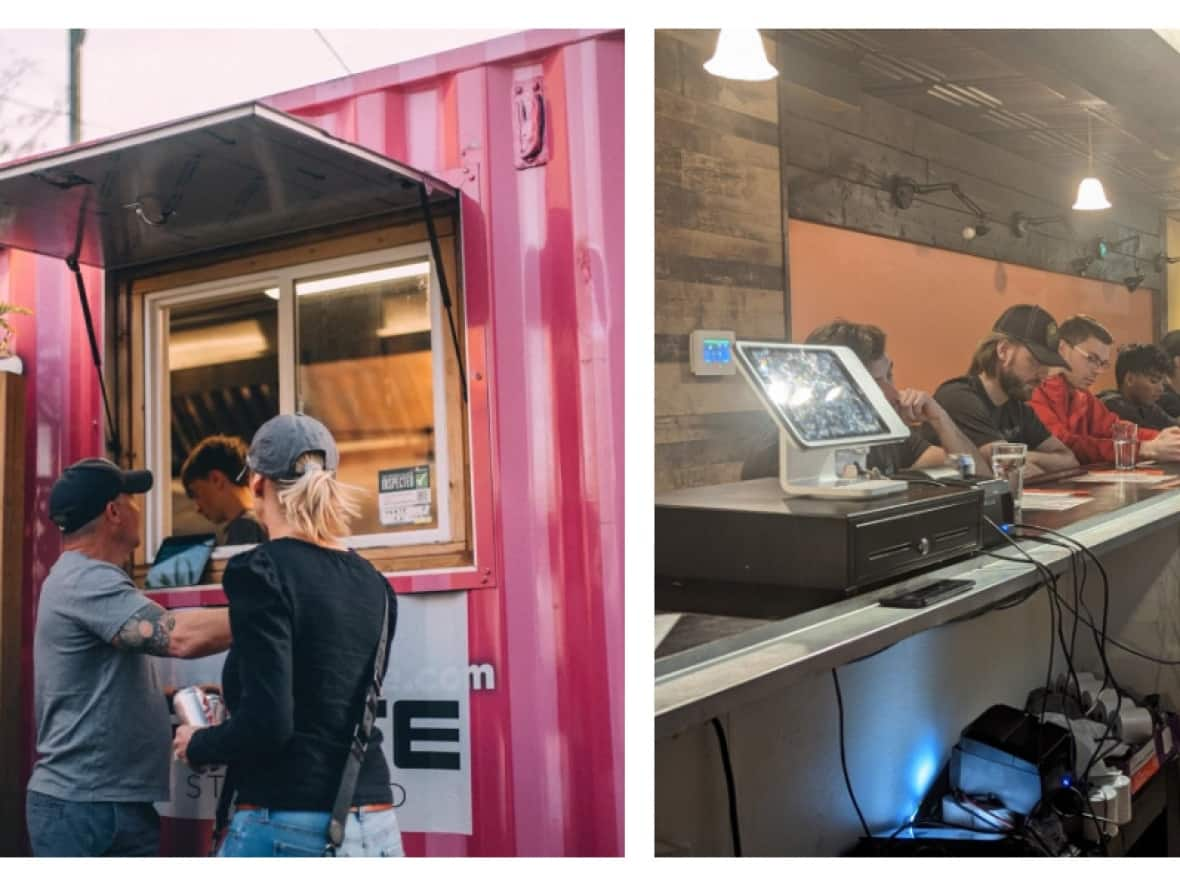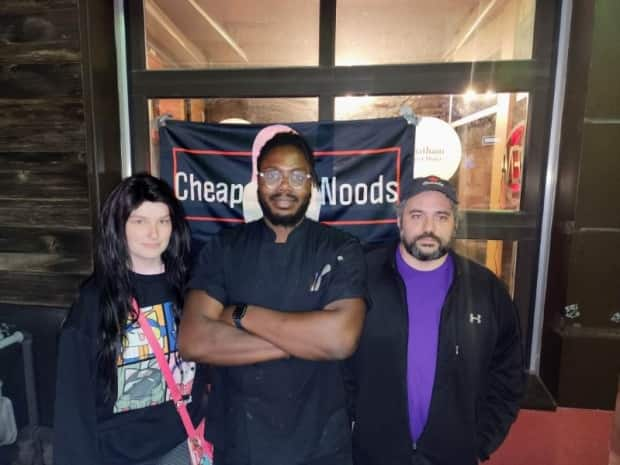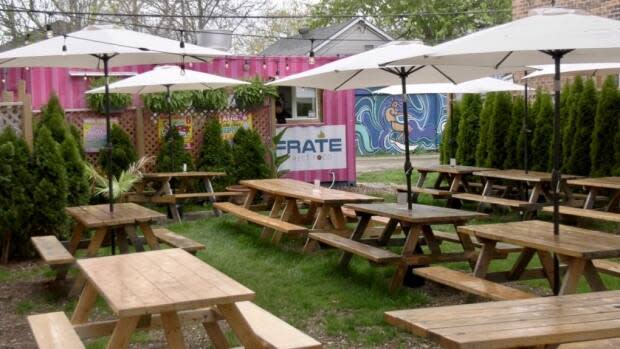Shipping containers and shared kitchens: High inflation has restaurateurs getting creative

Whether it's serving food on a patio from a shipping container, or operating overnight in a shared kitchen space, some Windsor, Ont., restaurateurs are getting creative on the heels of the pandemic and amidst inflationary pressures.
Hunter Cristofaro calls Cheap Noods Windsor's only late night ramen spot.
"Hopefully we can start a trend and bring back a little bit of actual life back to the downtown core after 2 a.m.," said the chef and owner of the business, in the city's downtown.
It operates 11 p.m. to 4 a.m., Wednesday to Saturday, out of the Chatham Street Diner, when the breakfast spot is closed.
Cristofaro says leasing the kitchen space is an opportunity to operate a business without nearly as much overhead.
"I wanted to show people that you don't need to have tens of thousands of dollars, not hundreds of thousands of dollars, to establish a new business," he said.

"There are so many business owners downtown that want somebody to come in and operate the space that they have because you're helping them out. They're helping you out. It's a symbiotic relationship that works."
Keeping the hours short and limiting the menu to four items are other ways to keep the business model manageable, says Cristofaro.
"The model that I'm following right now is … think of it like a user-friendly, starting up approach to starting your own business. It gives to people on both ends — the original business owner that owns the establishment and yourself — a way of helping each other out. It gives you a foot in the door."
You don't really feel like you're in the city anymore. You feel like you've kind of gone away. - Rob Nesbitt, Frate Street Food owner and chef
Having worked at a number of restaurants around the city, chef Rob Nesbitt says he wanted to bring something different to Windsor — something he's seen in bigger centres.
So, he decided to bring his ever-changing street food menu to the patio of the bar Pressure Drop in Ford City, under the name Frate Street Food that he's running out of a shipping container.
"I guess with the shipping container, Windsor didn't have anything like it. I really liked the idea like in Detroit and Boston, the other large cities … seeing these containers are kind of unique," said Nesbitt.
"You don't really feel like you're in the city anymore. You feel like you've kind of gone away."

According to Nesbitt, the build of a shipping container is "exactly the same" as a food truck, but the maintenance costs are "minimal" in comparison.
After looking into bricks and mortar places, Nesbitt says having something small like a shipping container made sense for him because of how hard it is to find staff, and it's something he can operate on his own if he has to.
"It was a great opportunity for me to not necessarily have to start from the ground up. Times have definitely changed. You know, food costs have gone up, labour costs have gone up."
"You're competing with everyone around you … the more you collaborate, the better off you are. You have more draw from different people and demographics."
Michael Weber of Pressure Drop says they were pitched the idea in the fall and felt it could benefit both businesses to become more of a "destination" and attract new clientele.
"In Windsor we just don't have those high density, high foot traffic commercial districts like you would have in Toronto or Montreal or Vancouver, where you have sort of this captive audience of people passing by, popping in for a drink," he said.
"When people choose to leave their house, get in the car and go and park somewhere, they want to sort of have it all. And that includes food. So I think that getting that food in there really sort of enhances our spot as a destination place."
A professor of entrepreneurship and strategy at Toronto Metropolitan University says she thinks unique food service options will be the norm moving forward.
Wendy Cukier says inflationary pressures and competition of labour continue to change how consumer behaviours.
"This phenomenon of new interesting combinations and permutations is something we are seeing more of and it does reduce the risk," she said.
"People can try something new without mortgaging their home to buy or rent a new facility, test the market price of something or shift to something else. I think it gives a lot more flexibility."


